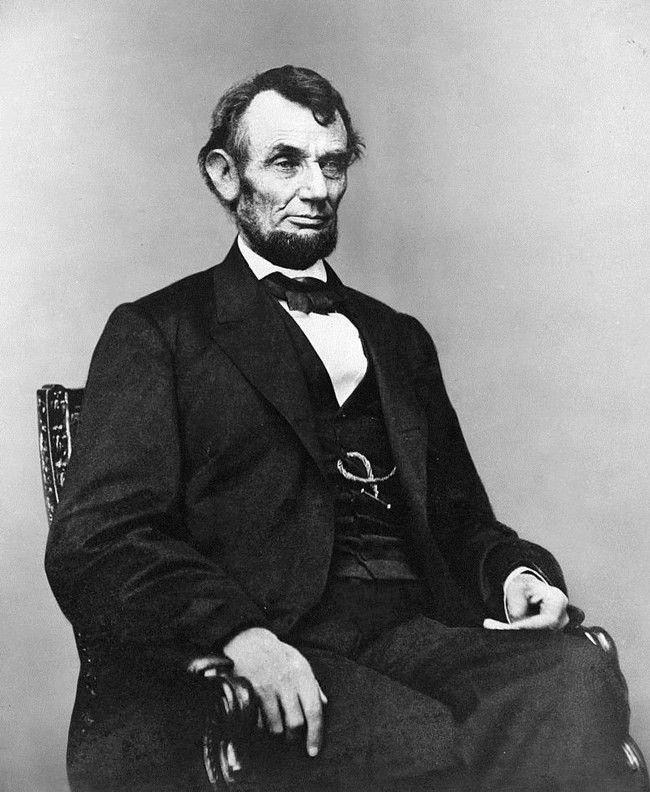Abraham Lincoln Invented Facebook: How The Hoax Captivated And Fooled The Web

From Winklevoss brothers to Paul Ceglia of Wellsville, Mark Zuckerberg has already faced a lot of tough time regarding his ownership of Facebook.
While the 27-year-old CEO is still fighting to prove that the popular social networking site solely belongs to him, a captivating blog post hit the Web Tuesday, saying that former US President Abraham Lincoln tried to patent an idea very similar to Facebook as early as in 1845. However, the idea was rejected by the United States Patent and Trademark Office.
The story was published by entrepreneur and blogger Nate St. Pierre on his website, in which he claimed that during a visit to a cemetery in Delavan, Wisconsin, he stumbled upon the circus graveyard, where a lot of P.T. Barnum's circus folk were buried!
Pierre claimed to have seen an old gravestone with an inscription - Bluffed P.T. and Honest Abe with a pair of deuces. Thinking that Barnum could have been referring to Lincoln, he headed to the Lincoln museum in Springfield, III., where a research specialist named Matt showed him a paper, titled Springfield Gazette.
Similar to a newspaper, the sheet of paper was replete with status updates, a profile photo and brief quotes. Pierre explained:
The first column underneath his picture contains a bunch of short blurbs about what's going on in his life at the moment - work he recently did, some books the family bought, and the new games his boys made up. In the next three columns he shares a quote he likes, two poems, and a short story about the Pilgrim Fathers. I don't know where he got them, but they're obviously copied from somewhere. In the last three columns he tells the story of his day at the circus and tiny little story about his current life on the prairie.
Put all that together on one page and tell me what it looks like to you. Profile picture. Personal information. Status updates. Copied and shared material. A few longer posts. Looks like something we see every day, doesn't it?
Pierre said that after reading the paper, they both sat there quiet for a long time and finally came up with the conclusion that it was a patent request for Facebook, filed by Abraham Lincoln in 1845.
Lincoln was requesting a patent for The Gazette, a system to keep People aware of others in the Town, Pierre teasingly wrote.
With a photoshopped layout of the paper, the story was indeed a nice attempt to make Lincoln the father of social networks. Pierre claimed that the story got over 100,000 views on his blog post, and 16,000 Facebook Likes, over 1000 tweets and almost 300 Google+ shares indeed suggest the same.
As a CNET report asks, was President Lincoln so half-witted to wonder what his neighbor's dog had eaten for dinner? No, he was obviously not. And that said Pierre's Springfield Gazette is nothing but a mere fabled piece.
According to Mashable, the tale that managed to fool publications like Forbes, The Next Web and ZDNet (all three have since amended their stories) was full of technical errors, like the fact that the picture of Lincoln postdated the newspaper by decades.
Still, the most glaring red flag was this: Abraham Lincoln's life has been picked apart by more historians than any other American celebrity. We know everything there is to know about his early years in Kentucky, his law practice in Springfield, his one genuine patent (a device to lift boats over shoals), said the report.
Although the patent was never put into production, Lincoln remains the only US president to have received a patent in 1849, Discovery News reported.
The report also cited one commentator, who pointed out, Newspapers of the era couldn't reproduce photographs. Until the 1880s or so, photographs had to be turned into engravings before printing.
To churn out more truth, CNET contacted Lincoln Museum's spokesman, Dave Blanchette, who confirmed Pierre's story as a complete but clever hoax, and researcher Matt as an imaginative character.
We did not meet with him, and no one by the name of Matt works here. Lincoln is the only President to hold a patent, but it was for a device to help riverboats that became stuck on sandbars. That is a far cry from Facebook, Blanchette told CNET.
As Abraham Lincoln himself once told, You can fool some of the people all of the time, and all of the people some of the time, but you cannot fool all of the people all of the time.
What an irony!
© Copyright IBTimes 2024. All rights reserved.





















